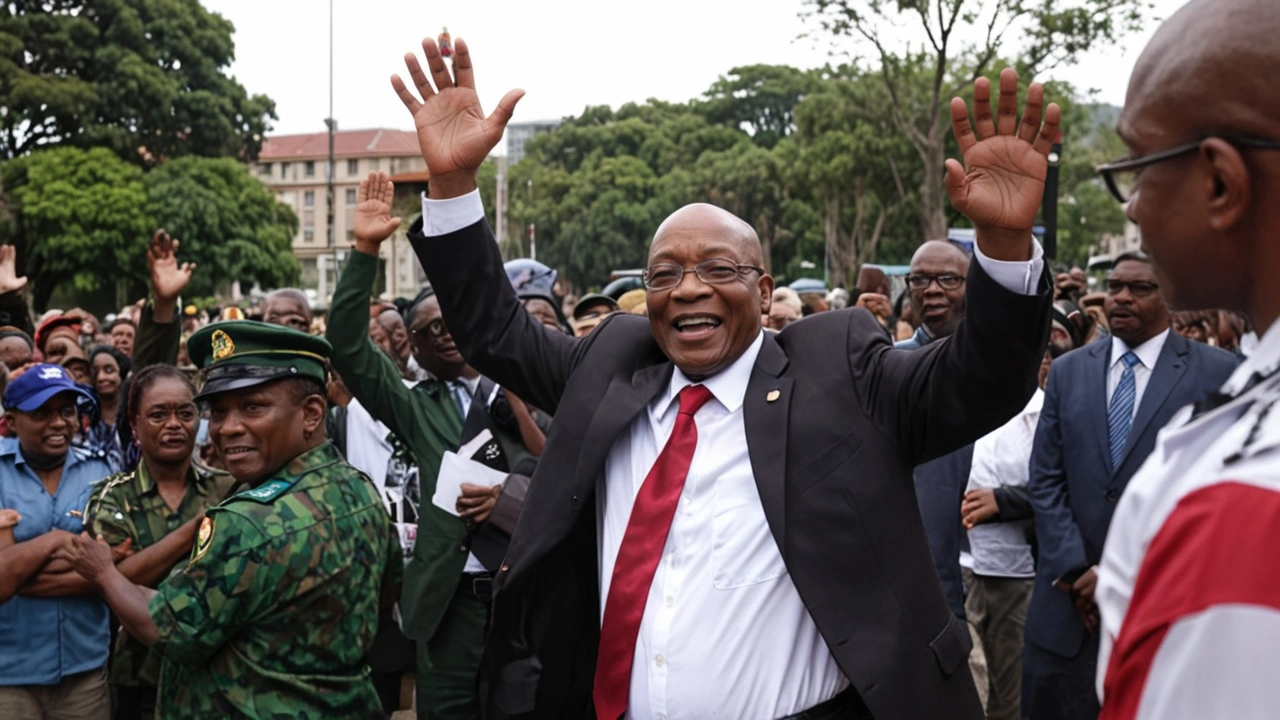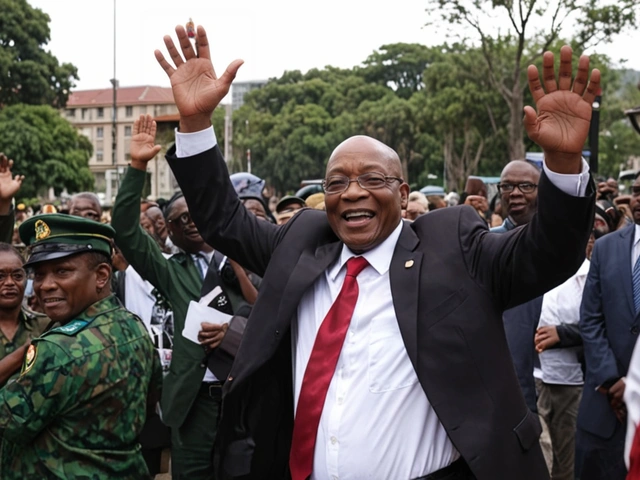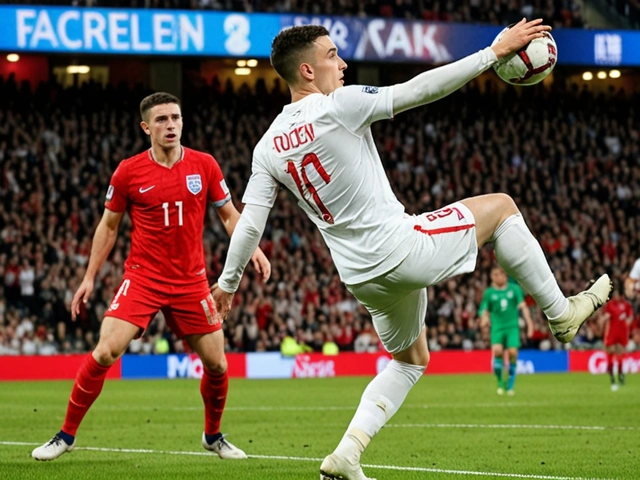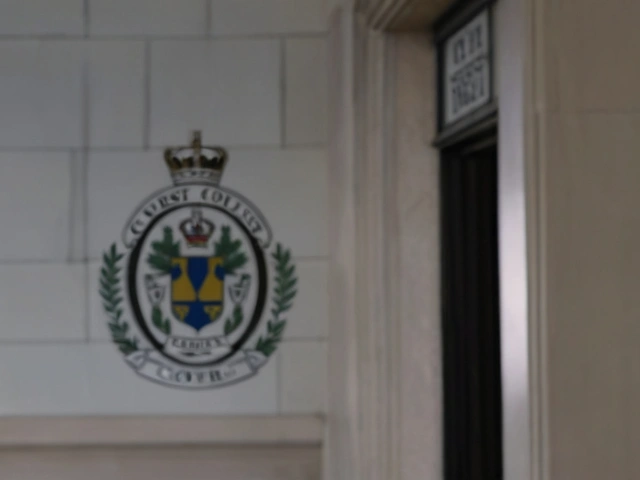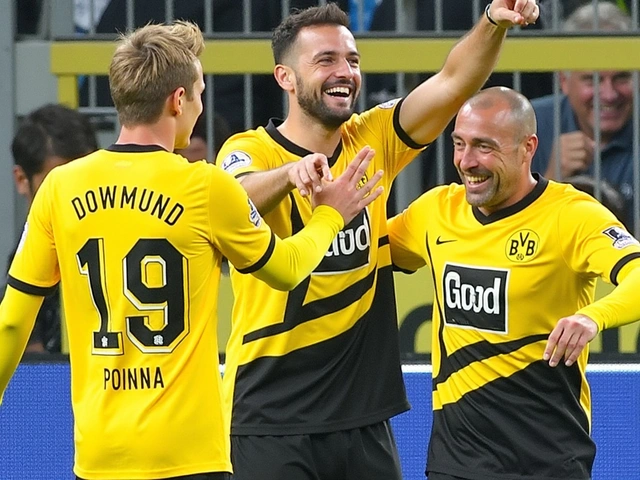ANC Moves Forward with Disciplinary Actions Against Jacob Zuma Amid Political Turmoil
ANC Moves Forward with Disciplinary Actions Against Jacob Zuma Amid Political Turmoil
The African National Congress (ANC) is pushing ahead with disciplinary proceedings against former South African president Jacob Zuma. Zuma is at the heart of a political storm, facing accusations of misconduct for his public declaration to support the rival MK party—an entity he founded—to challenge his own party, the ANC, in the significant May elections.
Zuma's decision has sent ripples through South African politics, igniting fierce debates and polarizing opinions within the ANC. The former president remains a member of the ANC despite his controversial move to establish and back the MK party. This new faction’s sheer existence serves as a direct challenge to the ANC's leadership, specifically targeting President Cyril Ramaphosa. By advocating for the MK party, Zuma has potentially undermined the party he once led, creating a complex political conundrum.
The ANC’s secretary-general, Fikile Mbalula, has voiced strong criticisms against Zuma. Mbalula attributes the ANC’s recent electoral losses squarely on Zuma's shoulders, alleging that his actions were pivotal in the party's defeat. The ramifications of Zuma's behavior extend beyond mere electoral outcomes; they represent a broader threat to the unity and stability of the ANC, a party that has been a cornerstone of South African politics for decades.
Adding fuel to the fire, Zuma faces multiple charges beyond his vocal support for the MK party. He is accused of inciting his supporters to uproot the ANC and further raising eyebrows by appearing on the MK party's list of parliamentary candidates. These developments have escalated tensions, prompting the ANC's national disciplinary committee to proceed with a hearing that could culminate in Zuma's expulsion from the party if he is found guilty.
The disciplinary process, however, is not straightforward. Zuma has vehemently opposed certain aspects of the proceedings, particularly the notion of an in-person meeting by the disciplinary committee to decide his fate. In a dramatic turn, he has threatened to legally challenge the ANC if the committee insists on holding a physical hearing. This legal threat introduces another layer of conflict, highlighting the precarious balance the ANC must maintain in dealing with one of its most influential yet controversial figures.
Zuma’s stance remains unyielding; he has consistently asserted that he will retain his membership in the ANC until his death, despite his active leadership role in the competing MK party. This claim further complicates the disciplinary process, as it raises questions about loyalty, party ethics, and the future political landscape of South Africa.
The ANC's disciplinary committee's decision will be critical, not just for Zuma, but for the party itself. Details of the hearing’s outcome will be disclosed after the committee has reviewed all representations, although no specific timeline has been provided. The committee's rulings and the subsequent reactions from both Zuma and the broader political community will undoubtedly shape the next chapter in South Africa’s political narrative.
This ongoing saga brings to light deeper issues of political allegiance, leadership tussles, and the fragile nature of party unity within the ANC. As the disciplinary proceedings advance, many will watch closely, considering the far-reaching implications for both the ANC's future and the broader political stability in South Africa.
Implications for Key Political Stakeholders
The outcome of the disciplinary proceedings against Zuma holds substantial implications for several key political stakeholders. For President Cyril Ramaphosa, a guilty verdict and possible expulsion of Zuma could strengthen his position within the ANC, asserting his leadership and potentially rallying the party to restore its unity. Conversely, an acquittal or a light sanction could embolden Zuma's supporters, exacerbating divisions within the party and weakening Ramaphosa's grip on power.
From a broader perspective, the developments surrounding Zuma's disciplinary hearing will also impact South Africa's electoral landscape. The establishment and activities of the MK party introduce new dynamics into the country's political arena. Should Zuma retain his ANC membership while promoting the rival MK party, it could lead to a dual allegiance phenomenon, influencing voter support and party loyalty in unforeseen ways.
Moreover, Zuma's legal threats against the ANC highlight the intersection of judiciary and politics in South Africa. An inevitable court battle would not only stall the disciplinary process but also set a legal precedent that could affect future party disciplinary actions and political maneuverings.
Public and Media Reaction
Public and media reactions to Zuma's predicament have been varied, reflecting the deeply divided opinions on his role and influence in South African politics. Some see him as a maverick challenging the status quo and advocating for political pluralism, while others view him as a destabilizing force undermining the ANC's foundational principles.
Media coverage has been extensive, with commentary ranging from support for the disciplinary measures to critiques of its potential repercussions. Political analysts have weighed in on the necessity of maintaining party discipline versus the dangers of alienating a significant political figure like Zuma, whose base of support remains substantial.
The ANC member's sentiments are also mixed, with some calling for a stringent approach to reaffirm party rules and discipline, while others advocate for a more conciliatory method to avoid further fracturing the party.
The unfolding events and their portrayal in the media will likely shape public perception and influence political discourse in the coming months, as South Africa navigates this complex chapter in its democratic journey.
Historical Context and Future Outlook
Zuma’s current situation cannot be fully understood without considering the historical context of his political career and his longstanding influence within the ANC. His tumultuous tenure as president was marked by numerous allegations of corruption and administrative controversies, yet he has managed to retain a solid base of supporters who view him as a victim of political vendettas.
Looking forward, the outcome of these disciplinary proceedings will likely serve as a critical juncture for the ANC. It will test the party’s ability to enforce discipline while managing internal dissent and navigating the challenges posed by splinter factions like the MK party.
As South Africa watches these developments unfold, the broader implications for national governance and political stability will become clearer. The ANC's handling of Zuma's case will be an essential indicator of its readiness to confront internal challenges and uphold its values, setting the tone for the political landscape in the near future.
In conclusion, the ANC's disciplinary proceedings against Jacob Zuma encapsulate the ongoing battle for party unity, leadership legitimacy, and the future direction of South African politics. The decisions made in this critical period will resonate far beyond the ANC’s internal dynamics, influencing the country’s democratic fabric and political stability for years to come.
